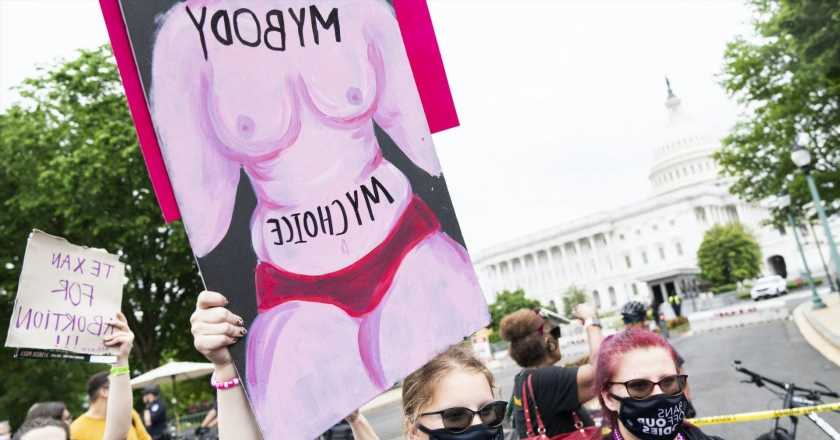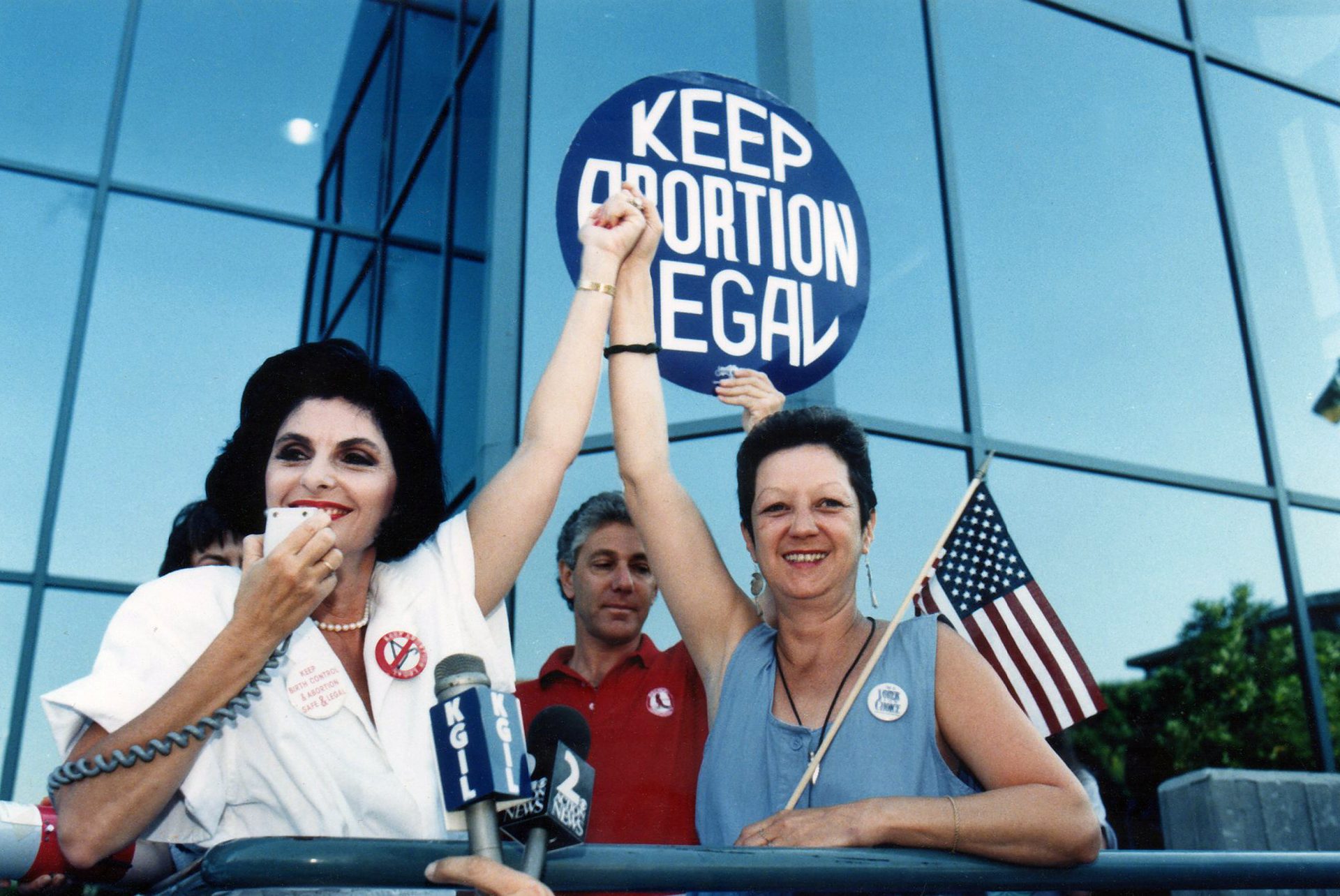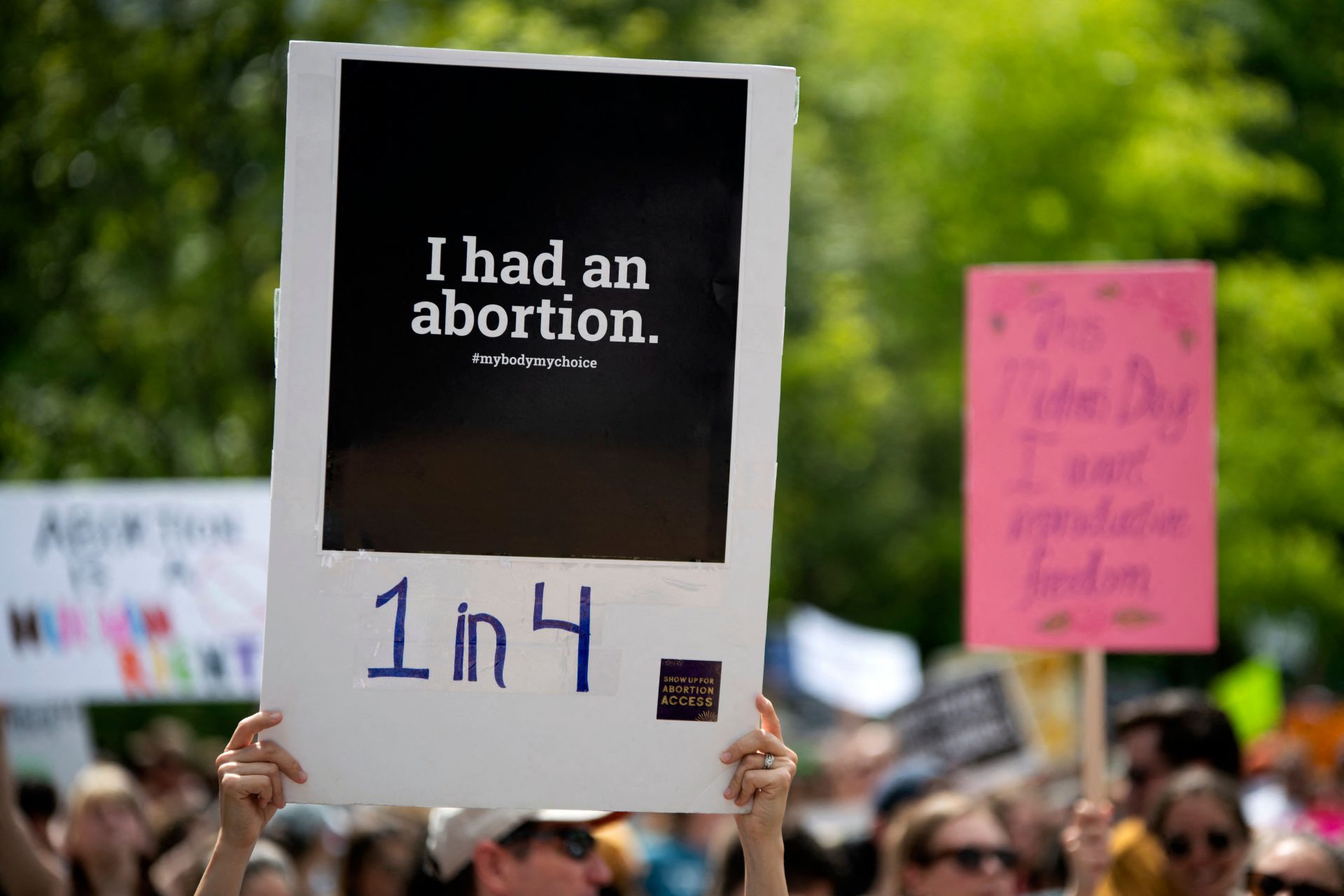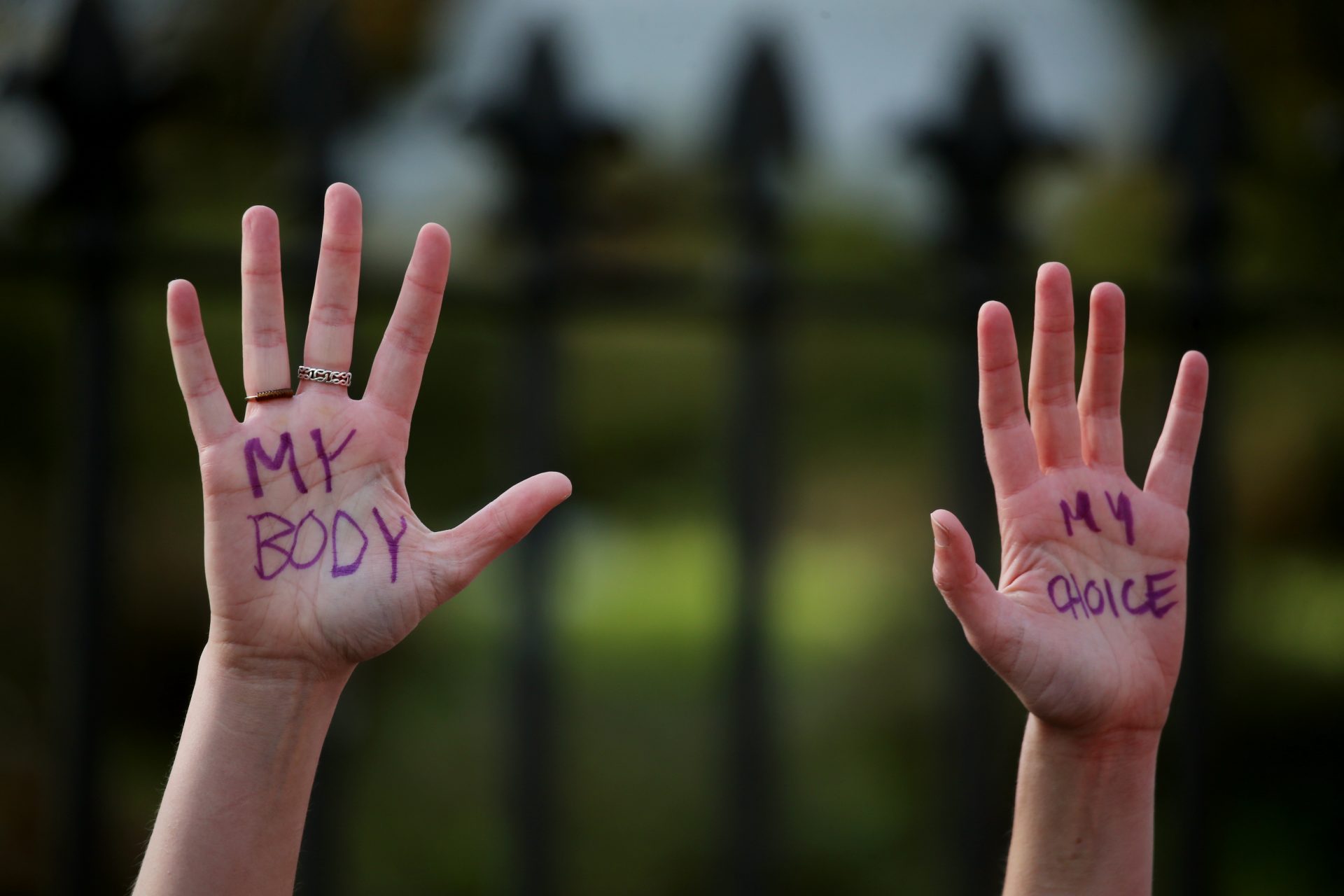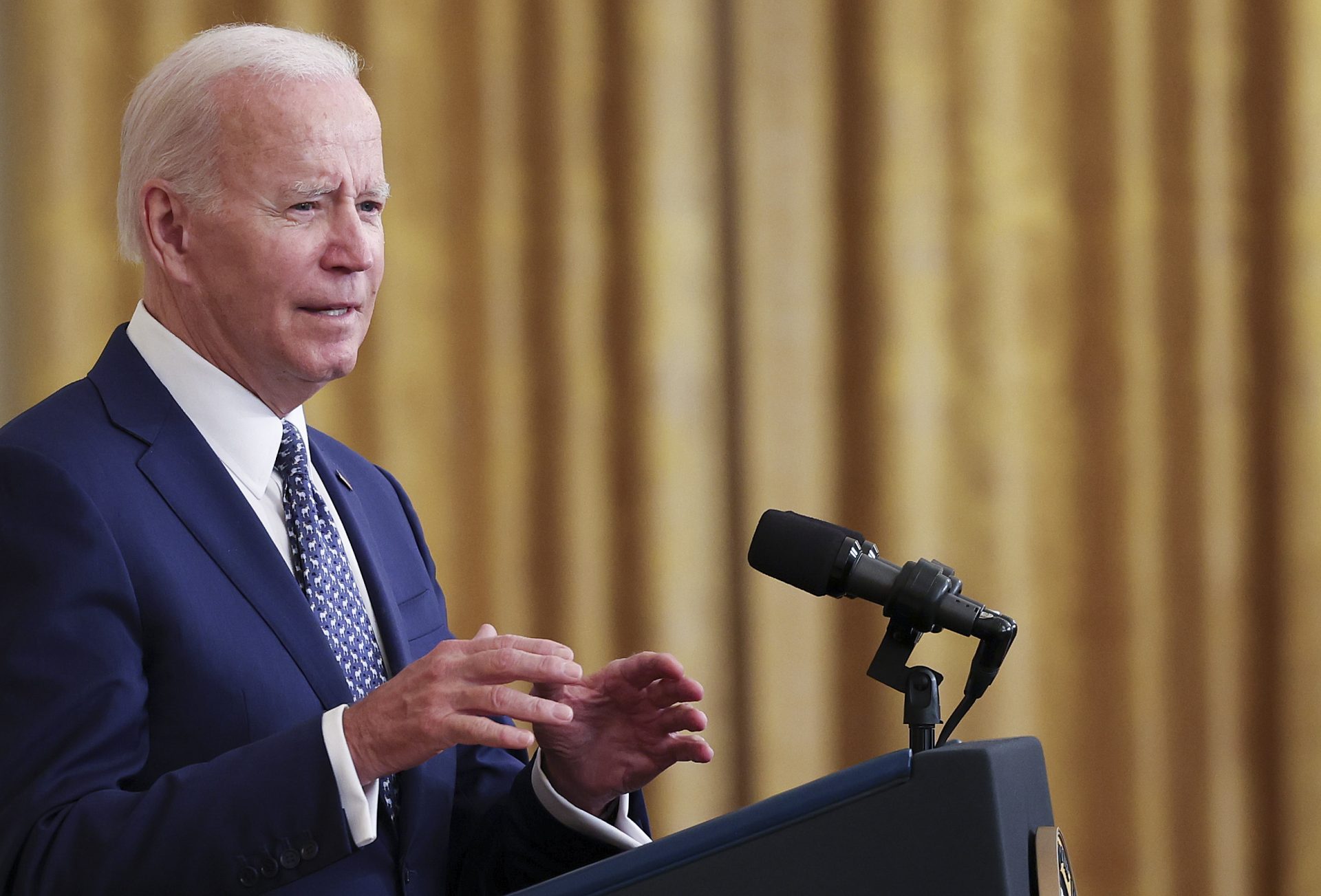Written by Lauren Geall
As Stylist’s digital writer, Lauren Geall writes on topics including mental health, wellbeing and women’s issues. She’s also a big fan of houseplants and likes to dabble in film and TV from time-to-time. You can find her on Twitter at @laurenjanegeall.
As the world waits to find out whether the US Supreme Court will overturn the landmark Roe v Wade ruling, Stylist investigates what that eventuality would mean for women across America.
As train strikes and hot weather make headlines here in the UK, across the Atlantic, women, pro-choice activists and healthcare providers are awaiting news of an entirely different magnitude.
In the coming days, the US Supreme Court is expected to publish its opinion on a case challenging a Mississippi law which bans abortion after 15 weeks of pregnancy. If it’s allowed to stand, it will overturn the landmark precedent set by Roe v Wade in 1973 – an integral ruling which gave women the right to have an abortion during the first trimester of their pregnancy.
While previous cases designed to overturn Roe v Wade have failed to achieve such a goal (although pro-choice activists have voiced their concerns about such an eventuality for many years), a leaked draft opinion on the Mississippi case obtained by Politico in May revealed that the Supreme Court had provisionally voted to overturn Roe v Wade.
Understandably, this ruling came as a shock to many people – especially in states where attempts to restrict abortion access have been increasing in intensity over the last couple of years.
While the idea of allowing states to take control of their own abortion laws may not sound that big of a deal, the removal of the right to abortion outlined in Roe v Wade could pave the way for an onslaught of horrific anti-abortion laws which will strip women of their right to necessary healthcare.
However, with so much history surrounding Roe v Wade, it can sometimes be hard to wrap your head around exactly what the Supreme Court’s opinion will actually mean for abortion access in the US. Keep reading to check out everything you need to know about this landmark decision – including the kind of legacy overturning the ruling could leave.
What is Roe v Wade? And why is it so important?
To understand the importance of Roe v Wade, you’ll need to know a little bit about the US justice system. There are many different types of courts in the US, but the Supreme Court is the highest of them all, which means that decisions made in the Supreme Court set precedents that other courts must then follow.
The Supreme Court also functions as “guardian and interpreter of the Constitution,” so its rulings provide guidance on what the country’s central laws mean.
The case of Roe v Wade was brought to the Supreme Court because lawyers for Norma McCorvey – the woman who brought the case – believed that a local district attorney was acting unconstitutionally. McCorvey – who was known by the legal pseudonym ‘Jane Roe’ – wanted an abortion, but was unable to get one because abortions were illegal in Texas except in cases where the mother’s life was at risk.
In the end, the court ruled in her favour by finding that, while the right to an abortion is not “absolute” and must be balanced against other interests like women’s health and prenatal life, abortion access constituted a woman’s “right to privacy”, and therefore banning it was unconstitutional.
To balance out these counteracting findings, the court drew up an abortion guide for the different stages of pregnancy, which said that abortions could not be regulated at all during the first trimester.
In this way, Roe v Wade was important because it gave women the right to abortion during the first trimester and largely throughout the second (governments were only allowed to intervene at this time for maternal health reasons, not to protect foetal life). It also put a limit on the amount of power state governments had to regulate abortion on a local level.
Will abortion be banned in the US if Roe v Wade is overturned?
While abortion won’t be completely banned in the US if Roe v Wade is overturned, the removal of the landmark precedent will make it easier for states to heavily restrict or ban abortion.
In 13 of the 50 US states – including Idaho, Louisiana and Mississippi – there are so-called “trigger laws” in place, which would ban abortion “immediately or by swift state action” as soon as the ruling is overturned, according to the Guttmacher Institute, a US-based research and policy organisation committed to advancing sexual and reproductive rights.
Other states – including Alabama, Arizona and Arkansas – also still have pre-Roe abortion bans in place, which are currently blocked by the courts. If Roe v Wade is overturned, these restrictions could easily be brought back into effect with a court order, the Institute says.
Of course, these changes won’t be made in every state in the US – and the removal of Roe v Wade doesn’t mean that states have to introduce anti-abortion laws. In fact, 16 states and the District of Columbia actually have laws in place that protect the right to abortion independent of Roe v Wade, and these states could provide abortions to women living in states where they are banned.
However, in total, it’s estimated that women living in about half of all US states could soon lose access to abortion if Roe v Wade is overturned, with over a quarter of abortion clinics being shut down.
Who will be most affected by these bans?
All people who are able to get pregnant will be affected by these bans, but they’re likely to have a disproportionate impact on marginalised groups – especially those who cannot afford to travel to states where abortion isn’t banned.
According to official data, younger women, poorer women and African American women would likely be worst affected, as these groups are more likely to seek an abortion.
The states where abortions are likely to be banned are also mostly located in the southwest of the country, meaning people who want an abortion would have to make long, expensive journeys in order to access one.
Could the government take action if Roe v Wade is overturned?
In a statement released after the Supreme Court’s draft ruling was leaked back in May, President Biden hinted that his administration would take action if Roe v Wade was overturned.
In a statement published to the White House website, Biden said he believed a woman’s right to choose was “fundamental” – and said his administration was ready to protect those rights where possible.
“Shortly after the enactment of Texas law SB 8 and other laws restricting women’s reproductive rights, I directed my Gender Policy Council and White House Counsel’s Office to prepare options for an Administration response to the continued attack on abortion and reproductive rights, under a variety of possible outcomes in the cases pending before the Supreme Court,” he wrote. “We will be ready when any ruling is issued.”
Images: Getty
Source: Read Full Article
